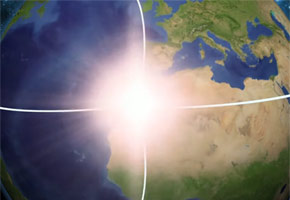

Evaluation was made at a meeting held in Morocco and attended by FAPESP Vice President Eduardo Krieger
Evaluation was made at a meeting held in Morocco and attended by FAPESP Vice President Eduardo Krieger.
Evaluation was made at a meeting held in Morocco and attended by FAPESP Vice President Eduardo Krieger.

Evaluation was made at a meeting held in Morocco and attended by FAPESP Vice President Eduardo Krieger
By Elton Alisson
Agência FAPESP – Sponsored by The German Marshall Fund of the United States (GMF) and the OCP Foundation of Morocco, The Atlantic Dialogues was held September 28-30 in Rabat, Morocco.
The objective of the meeting was to bring together public and private sector leaders from North and South America, Africa, Europe and Asia to debate strategic inter-regional strategies, such as security, the economy, migration and energy. FAPESP Vice President Eduardo Moacyr Krieger represented the Foundation at the event.
Created in 1972 by Germany as a permanent memorial to the Marshall Plan, which was instituted by the United States to help rebuild the allied nations in Europe after World War II, the GMF is dedicated to promoting understanding and cooperation between North America and Europe regarding transatlantic and global issues.
The institution, which performs a number of activities aimed at strengthening interaction between Europe and the North Atlantic, has joined forces with an entity created by one of the world’s largest phosphate producers, OCP, to hold a meeting in Morocco to include South Atlantic nations, such as Brazil, Mexico and other Latin American and African nations, in discussions of how to increase transatlantic cooperation.
“The idea of the meeting was basically to examine the possibility of bringing together the nations from the North Atlantic with those from the South,” Krieger told Agência FAPESP. One of the main subjects discussed was Brazil’s economic and geopolitical ascension.
Because of the leadership role Brazil plays in Latin America and the relations it already has with African nations, participants at the event suggested that Brazil could play the role of a strategic liaison between nations in the North Atlantic and those in the South Atlantic.
“The focus of the meeting was the way in which Brazil has been developing itself and the possibility of the country playing a leadership role in the Southern Hemisphere,” said Krieger.
One of the questions debated at the meeting was the countries with which Brazil would associate to exercise this regional leadership—that is, whether it would continue to cultivate relationships with its traditional partners, Europe and the United States, or whether it would ally itself with China, which is already one of Brazil’s main trade partners.
“Some of the questions discussed were about how Brazil is associating itself with China and what the mutual interests are,” said Krieger.
Scientific cooperation
The Brazilian delegation participating in the event was composed of some 20 representatives, most of them diplomats. FAPESP was the only science and technology-related institution invited to participate in the meeting.
Even though the discussion topics this year focused on economic questions, the organizers intend to include debates on scientific cooperation as a fundamental element of international collaboration on the agendas of the upcoming meetings.
Because of this, Krieger says that FAPESP could be an important partner in establishing the groundwork for the discussions and conducting scientific partnerships in areas such as mining, involving research from African nations and with representatives from São Paulo State.
“The idea is to create collaborative scientific projects in which FAPESP holds great interest and experience. The institution could, for example, analyze research proposals for such projects,” Krieger said.
During The Atlantic Dialogues, Krieger represented FAPESP in a meeting with GMF President Craig Kennedy and the CEO of the institution’s Brussels office, Ian Lesser.
Krieger said that the directors of the organization, which has headquarters in Washington D.C. and ten offices throughout Europe, showed great interest in visiting FAPESP to evaluate how the Foundation could collaborate on projects related to scientific cooperation.
Republish
The Agency FAPESP licenses news via Creative Commons (CC-BY-NC-ND) so that they can be republished free of charge and in a simple way by other digital or printed vehicles. Agência FAPESP must be credited as the source of the content being republished and the name of the reporter (if any) must be attributed. Using the HMTL button below allows compliance with these rules, detailed in Digital Republishing Policy FAPESP.





